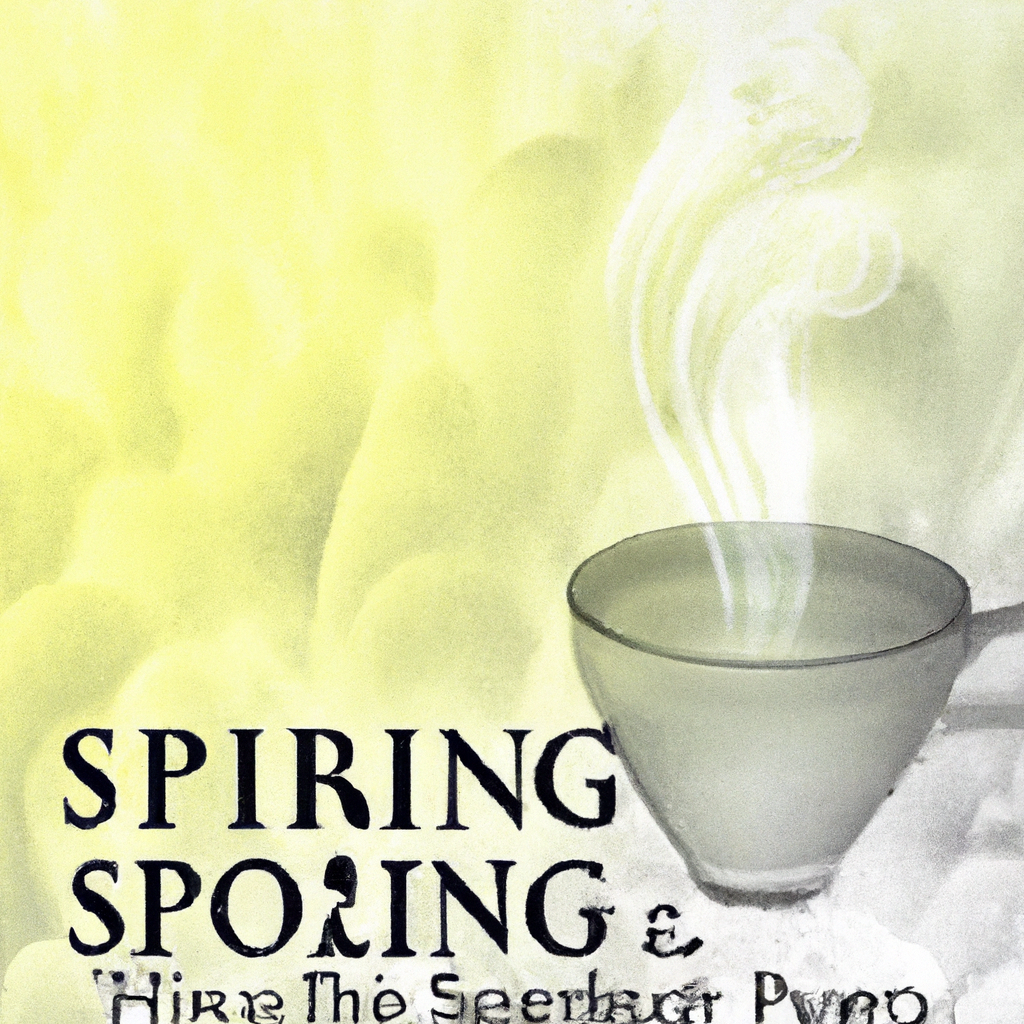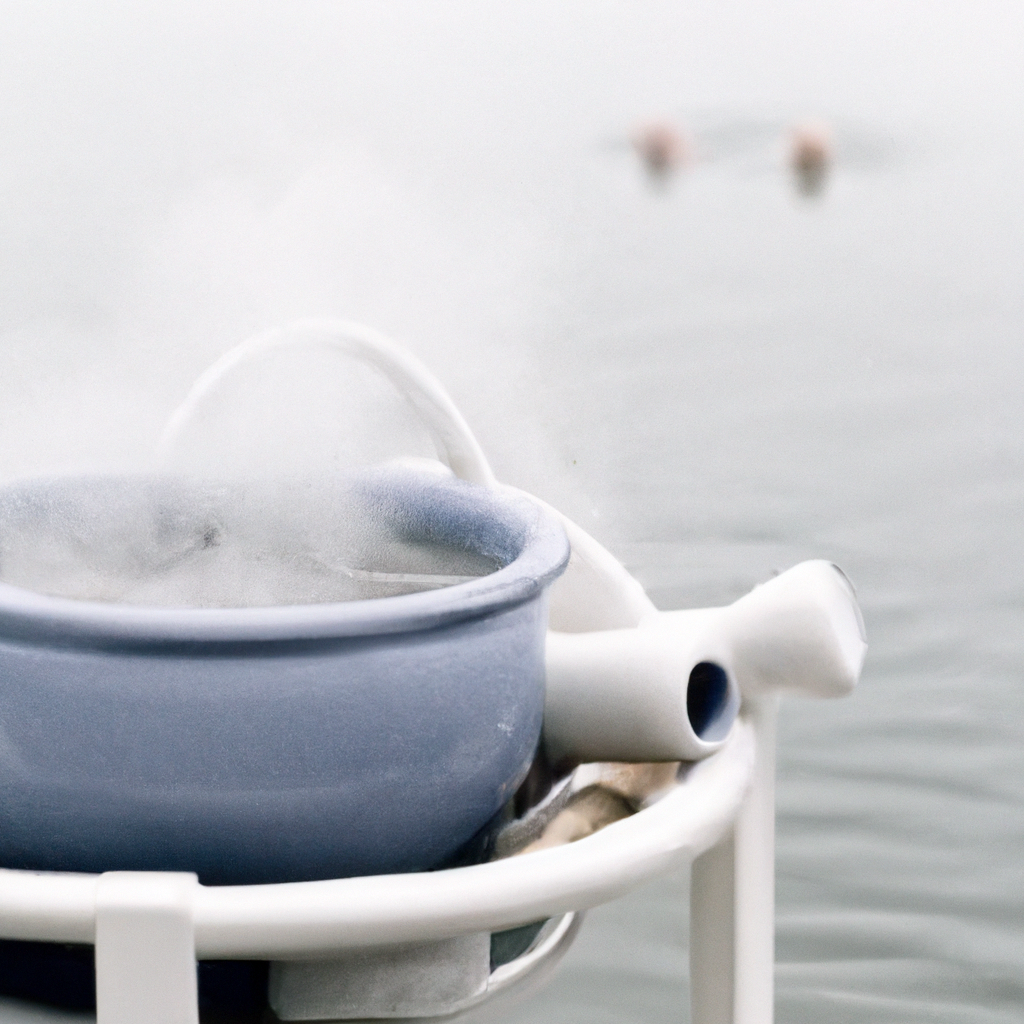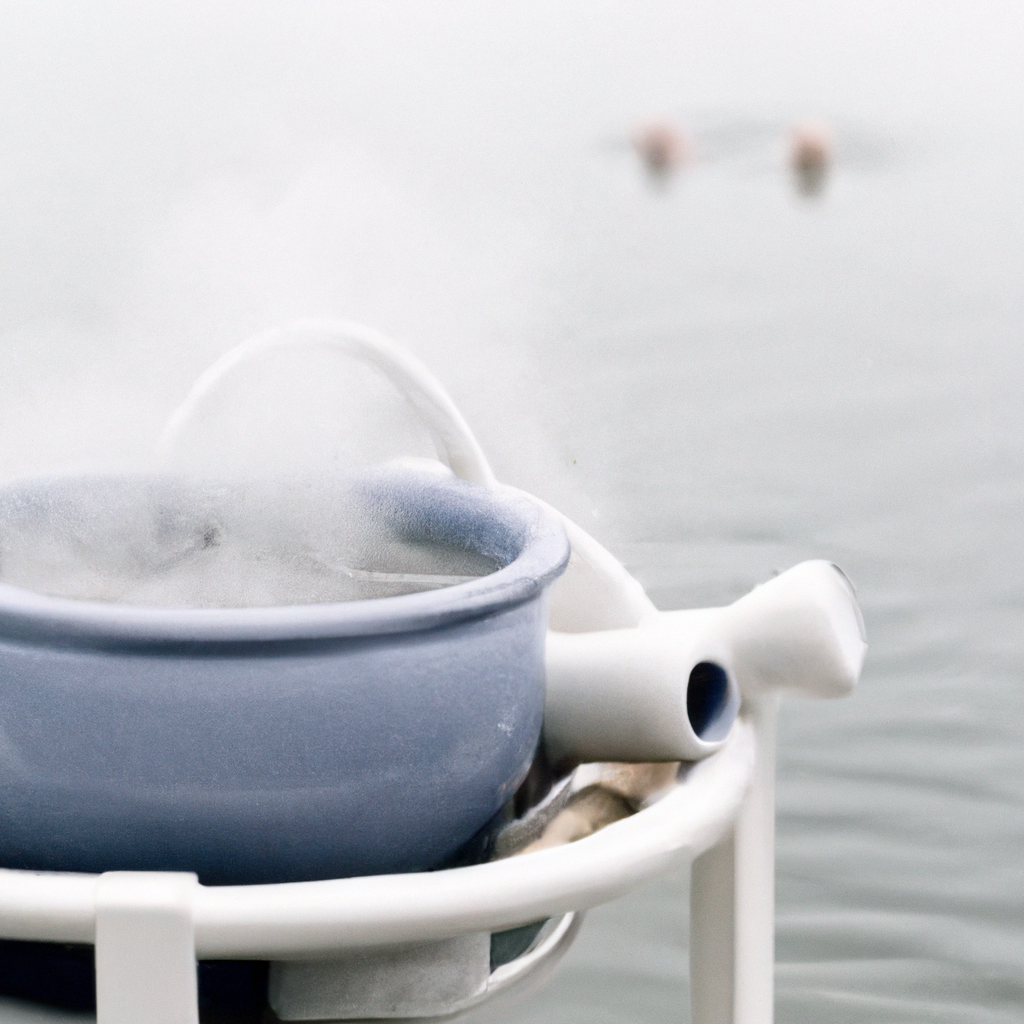Immerse yourself in the world of hot springs as you discover the enchanting experiences of famous authors. From Mark Twain̵7;s lively encounters with the healing waters to Jane Austen’s romantic musings amidst picturesque surroundings, this article unveils the captivating connections between renowned writers and the allure of hot springs. Discover how these natural wonders have inspired creativity, relaxation, and introspection, shaping the literary landscape in remarkable ways. Soak up the stories and embark on a journey through hot springs in literature.

Hot Springs in Fiction
Hot springs have long been a popular setting in novels, captivating readers with their natural beauty and therapeutic properties. From exotic locations to secluded retreats, hot springs provide a unique backdrop for stories to unfold.
Hot Springs as Settings in Novels
Hot springs serve as compelling settings in novels, offering a range of possibilities for plot development and character interactions. They can be picturesque locations where characters seek respite and relaxation, or they can be the scene of dramatic confrontations and revelations. The bubbling waters and steam rising from the earth create an atmosphere of intrigue and mystery, adding depth to the narrative.
Hot Springs as Symbols in Fiction
In addition to their role as settings, hot springs often serve as symbols in fiction. The healing qualities of hot springs can represent redemption, transformation, and rebirth. Characters may find solace and renewal in the waters, mirroring their personal journeys. Hot springs can also symbolize hidden depths and buried secrets, bubbling below the surface, waiting to be discovered.
Hot Springs in Mystery and Crime Literature
Hot springs make for enticing settings in mystery and crime literature. Their secluded nature and steamy ambiance create an air of secrecy and tension, perfect for suspenseful storytelling. As protagonists unravel the mysteries surrounding hot springs, they find themselves immersed in a web of deceit and danger. The juxtaposition of relaxation and danger adds an exciting dynamic to these narratives, keeping readers on the edge of their seats.
Hot Springs in Poetry and Essays
Hot springs have a profound impact on the creative mind, fueling inspiration for poets and essayists alike. The serene beauty and therapeutic nature of these natural wonders serve as fertile ground for artistic expression.
Hot Springs as Sources of Inspiration
Hot springs have long been a source of inspiration for writers. The tranquility and natural beauty of these locations inspire introspection and creativity. The soothing sounds of bubbling water and the sight of steam rising from the earth can transport writers to a state of calm and serenity, allowing their thoughts to flow freely and their words to take shape.
Hot Springs as Metaphors in Poetry
Poets often employ hot springs as metaphors to explore themes of rejuvenation, growth, and healing. The bubbling waters symbolize the transformative power of nature, offering hope and renewal. Writers use metaphors to evoke emotions and capture the essence of hot springs, creating vivid and evocative imagery that resonates with readers.
Hot Springs in Travel Writing
Hot springs have long been a popular topic in travel writing, captivating readers with vivid descriptions and personal anecdotes. Authors provide detailed accounts of their experiences, painting a picture of the hot springs’ unique characteristics and inviting readers to join them on their journey. These narratives often capture both the physical and emotional aspects of visiting hot springs, providing readers with a rich and immersive reading experience.
Famous Authors and Their Experiences with Hot Springs
Throughout history, renowned authors have sought inspiration and respite in hot springs, documenting their experiences and weaving them into their works.
Mark Twain and Hot Springs
Mark Twain, celebrated American author, had a deep appreciation for hot springs. Twain frequently visited the hot springs in Arkansas and even dedicated a chapter of his novel “Life on the Mississippi” to describe his experiences there. Twain’s vivid descriptions bring the hot springs to life, showcasing their allure and the tranquility they offered him as a writer.
Jane Austen’s Bath
In her novel “Northanger Abbey,” Jane Austen vividly portrays the town of Bath, England, famous for its hot springs. Austen’s protagonist, Catherine Morland, experiences the therapeutic properties of the hot springs, which serve as a metaphor for the personal growth and self-discovery she undergoes throughout the story. Austen’s keen observations and subtle commentary on society make the hot springs an integral part of the narrative.
Lafcadio Hearn and Japanese Onsen
Lafcadio Hearn, known for his writings on Japanese culture, extensively explored the country’s renowned hot springs, known as “onsen.” Hearn’s essays and travelogues provide readers with an intimate glimpse into the cultural significance of hot springs in Japan. He describes the ritualistic bathing practices, the healing properties of the waters, and the deep spiritual connection that the Japanese people have with these natural wonders.
Hot Springs in Memoirs and Autobiographies
Hot springs have long been associated with healing and self-reflection, making them an ideal subject for memoirs and autobiographies.
Hot Springs and Healing
Hot springs are often praised for their healing properties, both physical and emotional. In memoirs, authors recount their experiences of seeking solace and finding relief in the therapeutic waters of hot springs. These personal accounts highlight the profound impact that hot springs can have on one’s well-being and provide readers with a glimpse into the transformative power of nature.
Hot Springs as Places of Reflection
Hot springs offer a peaceful environment for introspection and self-reflection. In autobiographies, authors share their contemplative journeys within the soothing embrace of hot springs. These personal narratives explore the deep connections that individuals can forge with hot springs, unraveling layers of memories and emotions submerged within the waters.
Hot Springs as a Source of Tranquility
Memoirs and autobiographies often illustrate the serene nature of hot springs, emphasizing the tranquility and inner peace they bring. Authors recount their experiences of finding respite from the chaos of everyday life, immersing themselves in the soothing warmth of the waters. The tranquil ambiance of hot springs serves as a backdrop for personal stories of self-discovery and inner peace.

Hot Springs in Historical Fiction
Hot springs have a rich history and have been featured in various historical fiction novels, spanning different eras and cultures.
Hot Springs in Ancient Rome
The hot springs of Ancient Rome played a significant role in the daily lives of its citizens. In historical fiction novels set in this era, authors delve into the social, cultural, and therapeutic aspects of these hot springs. The Roman baths, with their grand architecture and communal bathing rituals, become central to the stories, conveying the opulence and complexities of Roman society.
Hot Springs in Medieval Europe
Medieval Europe also prominently featured hot springs in its literature. These hot springs were often imbued with mystical qualities, believed to possess healing powers or even supernatural influences. Authors transported readers to medieval European settings, where characters sought rejuvenation and spiritual enlightenment in the enchanting waters of the hot springs.
Hot Springs in the American West
The natural hot springs found in the American West have captured the imaginations of authors writing historical fiction. In these narratives, hot springs serve as gathering places for pioneers, explorers, and indigenous people, offering a sanctuary amidst the harsh wilderness. The geothermal wonders of Yellowstone National Park, for example, provide a captivating backdrop for tales of adventure, survival, and the clash of cultures.
The Literary Significance of Hot Springs
Hot springs hold a unique place in literature, with their symbolic and sensory significance often leaving a lasting impression on readers.
The Role of Hot Springs in Character Development
Hot springs provide a dynamic backdrop for character development, exposing their vulnerabilities, desires, or hidden truths. Characters immersed in the healing waters of hot springs undergo inner transformations, shedding past burdens or unlocking new insights about themselves. These experiences shape their personalities and influence their interactions with others, creating a multi-dimensional narrative.
Hot Springs as Symbols of Transformation
Hot springs often serve as symbols of transformation, representing a turning point in a character’s journey. Whether it is physical, emotional, or spiritual, the waters of hot springs are catalysts for personal growth and change. Authors employ hot springs as powerful metaphors, conveying their characters’ development and the profound impact of their experiences.
The Unique Sensory Experience of Hot Springs
Hot springs provide a sensory experience like no other. Authors use vivid imagery to describe the sounds, smells, and sensations associated with these natural wonders. The bubbling water, the earthy scent, and the warmth on one’s skin transport readers to the banks of the hot springs, allowing them to share in the characters’ immersive experience. The sensory richness of hot springs adds depth and authenticity to the narrative, making the reader feel fully present in the story.
Conclusion
Hot springs endure as a timeless literary motif, captivating readers and inspiring writers throughout history. From their roles as settings and symbols to their significance in character development and sensory experiences, hot springs bring depth and meaning to literature.
The influence of hot springs on the literary imagination is profound, as noted by the experiences of famous authors like Mark Twain, Jane Austen, and Lafcadio Hearn. Their works highlight the diverse ways in which hot springs have left an indelible mark on literature, shaping stories and evoking powerful emotions.
By exploring hot springs through literature, readers can embark on their own literary journeys, immersing themselves in the beauty and symbolism of these natural wonders. Whether they seek inspiration, relaxation, or a sense of tranquility, hot springs continue to captivate the human imagination, providing a rich tapestry for writers to weave their stories upon.
